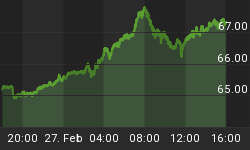As part of the 5,000-page long Covid-19 stimulus bill now pending President Donald Trump’s signature, is a new law that might disrupt a $30-billion industry.
Tucked in the stimulus bill passed by Congress, the Protecting Lawful Streaming Act punishes streamers that pirate large amounts of copyrighted content.
But Americans shouldn’t uninstall such apps and streaming software ... just yet.
After the initial scare, it seems that bill is not targeting casual users. Rather, it's focused on "commercial, for-profit streaming piracy services" that make money from illegally streaming copyrighted material.
Under the bill, proposed by Republican Senator Thom Tillis last month, any person that pirates video streams of copyrighted work will have committed a felony act and be subject to either fines or imprisonment.
Illegal streaming of works including movies and music tracks could carry a penalty of up to 10 years in jail. Currently, streaming unlicensed content is a misdemeanor offense.
"This commonsense legislation was drafted with the input of creators, user groups, and technology companies and is narrowly targeted so that only criminal organizations are punished and that no individual streamer has to worry about the fear of prosecution," he wrote in a statement.
Tillis said for-profit streaming pirates cost the U.S. economy nearly $30 billion a year in lost revenue.
However, some copyright-related elements of the bill are being disputed by many.
The bill will establish a new court-like entity within the U.S. Copyright Office to resolve copyright disputes and can administer fines of up to $30,000 for “activities as common as sharing memes, images, and videos online."
Previously, organizations would sue sites that recast the content, but if approved, the law’s measures would open the door for the FBI to pursue those website owners.
In response to the felony streaming act, representative Alexandria Ocasio-Cortez complained about the short time given to lawmakers to review the spending bill passed at speed by Congress.
“This is why Congress needs time to actually read this package before voting on it,” she said on Twitter. “Members of Congress have not read this bill. It’s over 5,000 pages, arrived at 2pm today, and we are told to expect a vote on it in 2 hours. This isn’t governance. It’s hostage-taking.”
Fight for the Future, a not-for-profit advocacy organization, said that changes to copyright law would have profound implications for online freedom of expression and human rights. They claim that the bill would make it easier for big media companies to win damages from ordinary internet users, who would be fined for doing things like sharing memes.
“These types of decisions should never be made in closed-door negotiations between politicians and industry or rushed through as part of some must-pass spending package,” group’s deputy director Evan Greer wrote in the statement.
The same advocacy group was also vocal more than a decade ago when a similar bill was proposed.
In 2011, Sen. Amy Klobuchar made a similar proposal that ended up dying due to public opposition. Even though her bill was supported by more than 40 industry groups, in that case, the public and advocacy groups had more time to react.
Fight for the Future started a campaign and website called “Free Bieber," warning that at then-teen pop star Justin Bieber could face five years in prison if copyright laws were amended.
Bieber responded at the time that he thought Sen Klobuchar should be "put away in cuffs" for a web streaming bill.
However, President Trump is granting more time for the public and groups to react on the bill as he is refusing to sign, even though he previously indicated he would not oppose the bill.
In the last-second opinion change, President Trump said he won't sign the relief bill into law unless Congress makes changes, including increasing stimulus checks to $2,000.
By Fred Dunkley for Safehaven.com
More Top Reads From Safehaven.com:
















